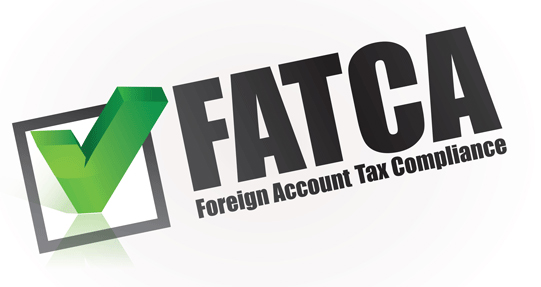| Belize | |
|---|---|
| Law | International Foundations Act, 2010 International Foundations Regulations, 2010 International Foundations (Amendment) Act, 2013 |
| Establishment of a Foundation | Draft the foundation charter Register the foundation with the registrar in Belize Transfer of assets/property to the foundation |
| Legality |
|---|
| After registration, the foundation has a legal personality. The foundation has same rights and status of separate and independent person. |
| Types of foundations: |
|---|
| Irrevocable, but the foundation charter may be amended by the council or the foundation may be dissolved if absolutely necessary; charitable and non charitable. |
| Uses |
|---|
| Holding and managing assets for family purposes, business purposes, commercial activity, philanthropic/charitable activities or other purposes |
| Elements of the Foundation | |
|---|---|
| Founder – Foundation Charter – Foundation Council By Laws (optional) – Beneficiary – Protector (optional) Property/assets/endowment – Secretary – Registered Agent |
|
| Creator | Founder — the person who establishes the foundation, or makes a transfer of assets to the foundation; may have more than one founder; the founder cannot serve as protector or council member; may be a beneficiary. |
| Management and Administrative Arm | The foundation must have a foundation council. The council is responsible for the administration of the assets in the foundation. The powers and obligations of the council are set out in the foundations charter. Neither the foundation council nor its members have a personal ownership or title to the endowment.|
| Minimum Number Of Members | There must be at least one member on the council. Individual and corporate members are allowed. |
| At least one (1) of the members must be a resident of Belize (can be a REGISTERED AGENT) | |
| Beneficiary | The person, persons or class of people benefiting from the foundation. The beneficiary can be: Identified by name Identified by Class Identified by Relationship Not yet born The beneficiaries can be changed. |
| Documentation | Foundation charter — the foundation charter is the governing document of the foundations. The charter is executed by the founder and each of the members of the council, protector (if any) and signed and witness and contains: name of the foundation name and address of founder purpose of the foundation name and address of registered agent name and address of council member initial endowment (value of assets to be placed into foundation) specify the beneficiaries or class of beneficiaries, and if there is no named beneficiary, provisions for management and administration of the foundation. |
| Registered agent and office | Must have a registered agent and a registered office in Belize. |
| By-laws (Optional) | The by-laws are optional rules and regulations or administrative provisions adopted by the foundation. |
| Secretary | Must have a secretary unless one of the foundation council members is a resident of Belize. Secretary must be resident of Belize, must be regulated and can be the registered agent. |
| Optional elements |
|---|
| A Protector may be appointed under the laws, whose powers are set out in the charter. A member cannot be a protector. |
| Duration |
|---|
| may be established for any period or for an indefinite period |
| Language |
|---|
| The Foundation Charter and any amendments may be written in any language, but when it is not written in English it must include a certified translation into English language. |
| Changes in documentation |
|---|
| Foundation Council can amend the foundation; changes or amendments can be made to the foundations charter, once unanimously agreed upon by members. (if the charter makes such provisions) |
| Type of assets/objects or endowment |
|---|
| Any Kind |
| Foundation name |
|---|
|
Name must end with the word “Foundation” or the abbreviation “Found.” Or “Fdn.” Or the equivalent in a Roman script. Cannot contain words such as royal, chartered, royal family, or names connected with government of Belize (see Brief Paper for more information) |
| Meetings of the foundation |
|---|
| If the charter or by-laws require meetings, the meeting can be held in a manner and place as dictated by the foundation laws. |
| Accounts |
|---|
| May keep accounts as deemed necessary by foundation council; however, the requirements under the Accounting Records (Maintenance) Act, 2013 must be adhered to. |
| Requirements to maintain status as international foundation |
|---|
|
The founder cannot be resident in Belize None of the beneficiaries is resident in Belize The endowment or property or assets does not contain any land or shares in Belize |
| Information on register (registrar) |
|---|
|
Name of foundation Name and address of registered agent Date of registration of foundation |
| Document of proof of existence |
|---|
| Certificate of Establishment containing, date of establishment, name of the foundation, name and address of agent, registration number of foundation. |
| Validity of certificate |
|---|
| A Certificate of establishment is valid for one year, after which it must be renewed. |
| Renewal/maintenance |
|---|
| Must be renewed on the anniversary of the foundation; there are penalty fees; failure to pay renewal fees or maintain an agent in Belize can lead to striking off (termination) of the foundation. |
| Dissolution |
|---|
|
A foundation may be dissolved when: it reaches it maturity date; it is revoked and may be dissolved voluntarily by the foundation council (if it has such powers according to the charter) |
| Continuance |
|---|
| Overseas foundations may continue in Belize under this act. |
| Confidentiality |
|---|
| Disclosure of information relating to the establishment, its administration, management, maintenance and assets, is forbidden and subject to stiff fines and penalties. |
| Certificate of good standing |
|---|
|
This is a government issued document that shows that the foundation: is a registered foundation has paid up all fees and penalties had filed all necessary paperwork |
| Tax Exemptions |
|---|
| Earnings and revenue of the foundation are 100% tax free in Belize |
| Restrictions |
|---|
| May not carry out any financial service business (unless licensed to do so) |
| Advantages |
|---|
| The Belize Foundation allows arbitration, where disputes can be settled out of court. |
| No member of the foundation council or board has any personal ownership or title to the endowment; no creditor of a member or founder or beneficiary has any right to the endowment. |
| A foundation set up for both charitable and non-charitable purposes qualifies as a charitable foundation even if the non-charitable purposes are the main purposes, and as such this type of foundation may be able to benefit from tax refunds or rebates where it operates. |
| Any body, person or agency wishing to take action against the foundation, must first deposit US$50k or any other amount set by registrar. |
| Specific provisions in the law for civil asset protection, such as non-recognition of foreign judgment |


